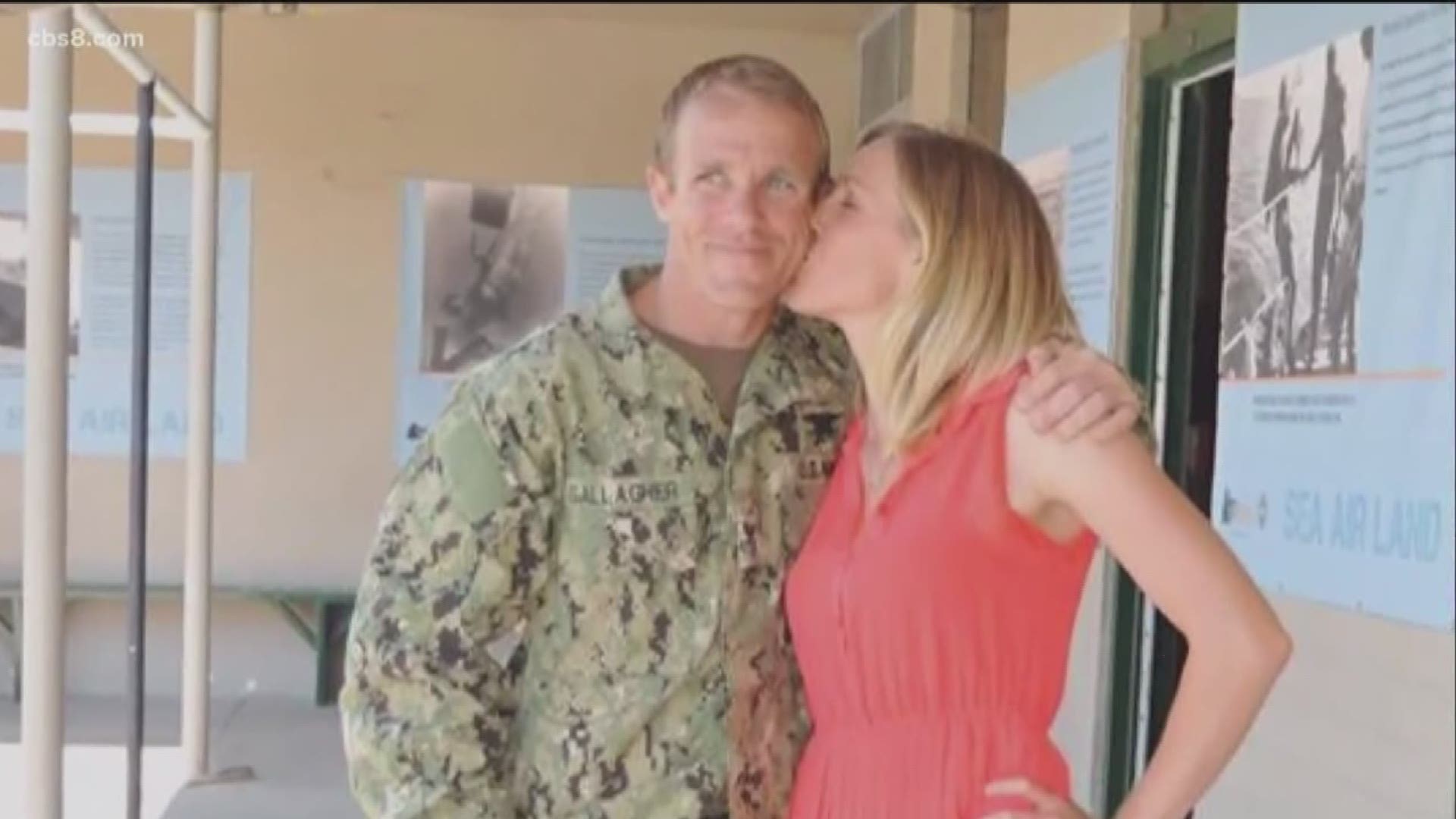Lawyers for a decorated Navy SEAL charged with war crimes asked a judge on Tuesday to find him not guilty as prosecutors rested their case.
The judge recessed the court-martial in San Diego to consider the request of attorneys for Special Operations Chief Edward Gallagher, who has pleaded not guilty to killing a wounded prisoner in Iraq and shooting at civilians. The judge denied the motion leaving the defense to begin presenting its case starting Wednesday.
Attorney Tim Parlatore argued that the case rests on tainted testimony from Gallagher's former comrades who hated him for his strict leadership. Parlatore also argued that there was no physical evidence such as a body or photos of knife wounds on the victim.
The final prosecution witness, a computer specialist, connected Gallagher to photos he texted friends in May 2017 showing him holding the dead Islamic State fighter by the hair and clutching a knife in his other hand. The specialist also linked Gallagher to a text message sent to friends that bragged: "Got him with my hunting knife."
Parlatore said the photo was in poor taste but even SEALs who have testified against Gallagher have acknowledged posing with the corpse.
Earlier Tuesday, another Gallagher lawyer grilled the lead investigator in the case.
A special agent with the Naval Criminal Investigative Service prejudged the case and decided to take aim at Gallagher before he gathered any evidence, Marc Mukasey suggested.
The agent, Joseph Warpinski, befriended witnesses and encouraged them to speak with each other in violation of standard investigation practices, Mukasey said.
Warpinski acknowledged making some mistakes in the hundreds of text messages he exchanged with witnesses, but denied making friends with them or encouraging them to discuss the case to get their stories straight. He said he had to build rapport with members of the insular special forces community to earn their trust and cooperation.
Gallagher, 40, is on trial for allegedly killing a wounded young Islamic State prisoner and shooting of an elderly civilian and a school-age girl.
Mukasey also suggested Warpinski had not asked pertinent questions of witnesses, such as the cause of death of the captive fighter Gallagher is accused of fatally stabbing after treating him for battle wounds.
Mukasey also asserted that there is no scientific proof the stabbing of the ISIS detainee even took place.
One of the witnesses to the alleged stabbing, Navy SEAL Corey Scott, embarrassed prosecutors last week when he confessed on the witness stand that he, not Gallagher, asphyxiated the patient by plugging his breathing tube.
"You never asked Corey Scott the cause of death, did you?" Mukasey said.
"I didn't say it in those exact words," Warpinski replied.
Scott testified that he thought the patient would have survived the stabbing, despite previously saying his life could not have been saved.
Scott said he decided to kill the prisoner because he assumed he'd be tortured to death by the Iraqi forces who captured him after he was wounded in an air strike outside Mosul in 2017.
Prosecutors pointed out that Scott had never told the government that version of the story until he took the stand under immunity from prosecution for his testimony.
Scott said Gallagher stabbed the boy multiple times, Warpinski testified.
Scott declined to make any changes or additions to statements he gave to investigators after being granted immunity months ago, Warpinski said.
"At that point did he tell you, 'No, no, no, it was me who killed the ISIS detainee?'" the prosecutor, Lt. Scott McDonald, asked.
"No," Warpinski replied.
During re-direct with prosecutors, Warpinski testified that some of the SEAL witnesses were afraid of Chief Gallagher. He said in a private Facebook group Gallagher asked follow warfare members to post the names of witnesses testifying against him. Warpinski said 12 members of the Gallagher's platoon declined to be interviewed for the case.

